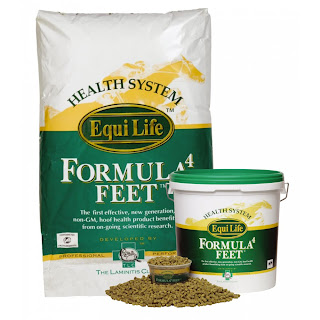When buying a horse, one of the most important things to look for is good conformation, or that the horse is “well put together.” This means the degree of correctness of a horse’s bone structure, musculature and the proportions of its body in relation to each other.
I myself know all too well about how poor conformation can affect a horse’s wellbeing, if not in the early stages of life, it can take its toll as they get older! It can also affect their ability to perform certain tasks. I bought my horse Angel as a four year old from a friend who had owned her for just under a year. She was full thoroughbred and even though several people had advised me against buying her, she had been sound and happy in that space of time so I bought her with no hesitation. Her knees and pasterns were slightly offset. My farrier informed me that it was called “Z leg.”
 She was sound for a good two years, until she was around seven years old when she started to become intermittently lame. A pattern soon appeared that she seemed to be sore after jumping or hacking on hard or uneven ground. My vet advised me to have her taken for x-rays to judge the extent of the damage to her joints because of the uneven ware. It was found that the damage was too severe for anything to be done about it and my farrier was to shoe her as normal. She would be sore every now and again, so I had just to give her some Danilon to keep her comfortable.
She was sound for a good two years, until she was around seven years old when she started to become intermittently lame. A pattern soon appeared that she seemed to be sore after jumping or hacking on hard or uneven ground. My vet advised me to have her taken for x-rays to judge the extent of the damage to her joints because of the uneven ware. It was found that the damage was too severe for anything to be done about it and my farrier was to shoe her as normal. She would be sore every now and again, so I had just to give her some Danilon to keep her comfortable.
I owned her until last year when she was eleven, going on twelve when she sadly had to be put to sleep due to an internal infection in her hock. I was absolutely devastated but I knew she had had the best life possible. In the end, she was basically retired for the last year of her life due to arthritis in her knees, pasterns and hocks. As a ten year old! I couldn’t believe it. She was on some top quality supplements throughout her life like Cortaflex, NAF Super Flex and I even fed her Bluechip Dynamic on top of these. They all dramatically helped but she was still never going to be able to perform to the level I bought her for.
Here at Tictac Equestrian, we would advise you to have your potential new horse vetted, even to the lowest stage, to ensure they are fit, healthy and up for the job you would like them to do. We wish you the best of luck and would love to hear if you have any advice or stories for us and our customers. We stock a wide range of quality joint, muscle and bone supplements and also a selection of natural pain relief supplements that you can buy from our website at www.tictacequestrian.com

